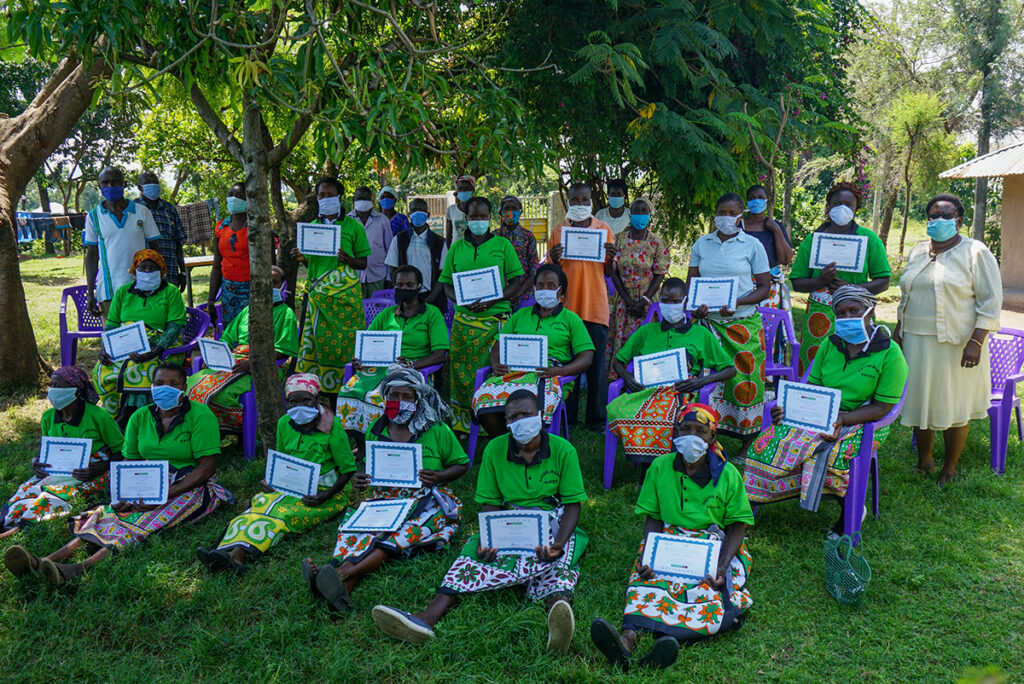COVID-19 makes SANGO-Kenya and its programs even more critical – and beneficial — to the communities where we work. A few weeks ago, when we had a small ceremony to mark the farmers’ completion of the pilot project, we clearly saw how much our program matters and how committed our team — the farmers, consultants, all of us – is to continuing.
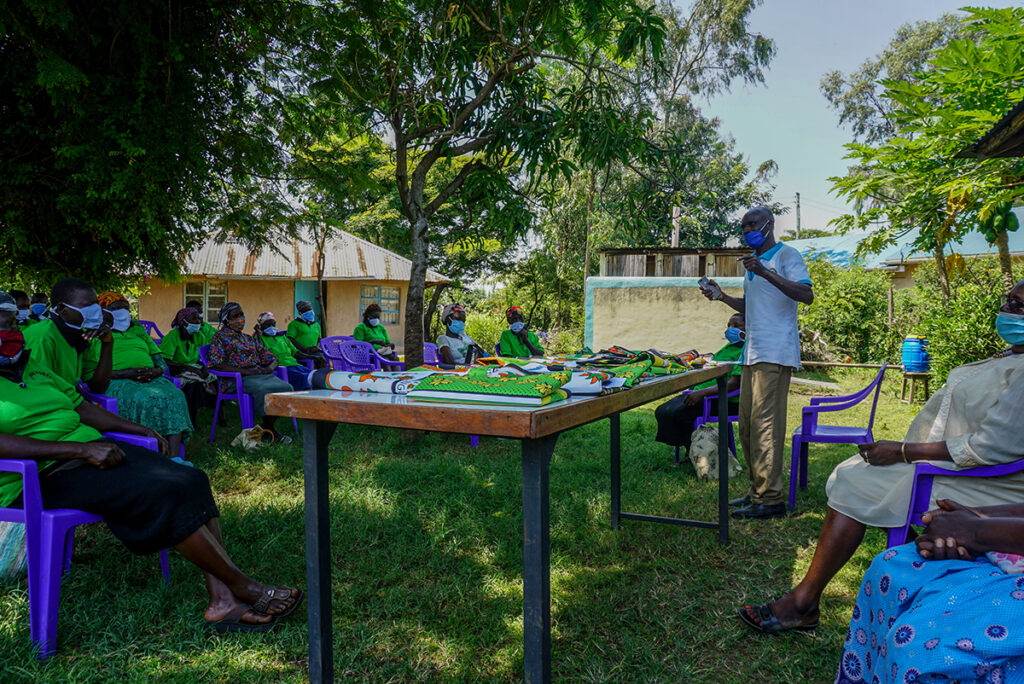
We had always thought we would have a graduation ceremony; but we intended to have it when Constance and I returned this summer at the end of the pilot, meet with the participants, and start planning the 2021 program. Needless to say, Constance and I didn’t go back, and at one point we even considered cancelling the graduation ceremony because the government restrictions forbid gatherings.
However, both Constance and Benta, our agriculture and home economics consultant who has continued to provide support and guidance to the farmers, knew how important the graduation would be to all of the participants, that honoring the completion of the training, farming, planting, and harvesting would mean a lot to them.
When we first met with the farmers last year, it was so evident that they wanted to learn how to improve their farming methods, nutrition, and economic well-being – and improve their own lives and the lives of their children. Health, food security, nutrition – none of those can be taken for granted by the people with whom we work.
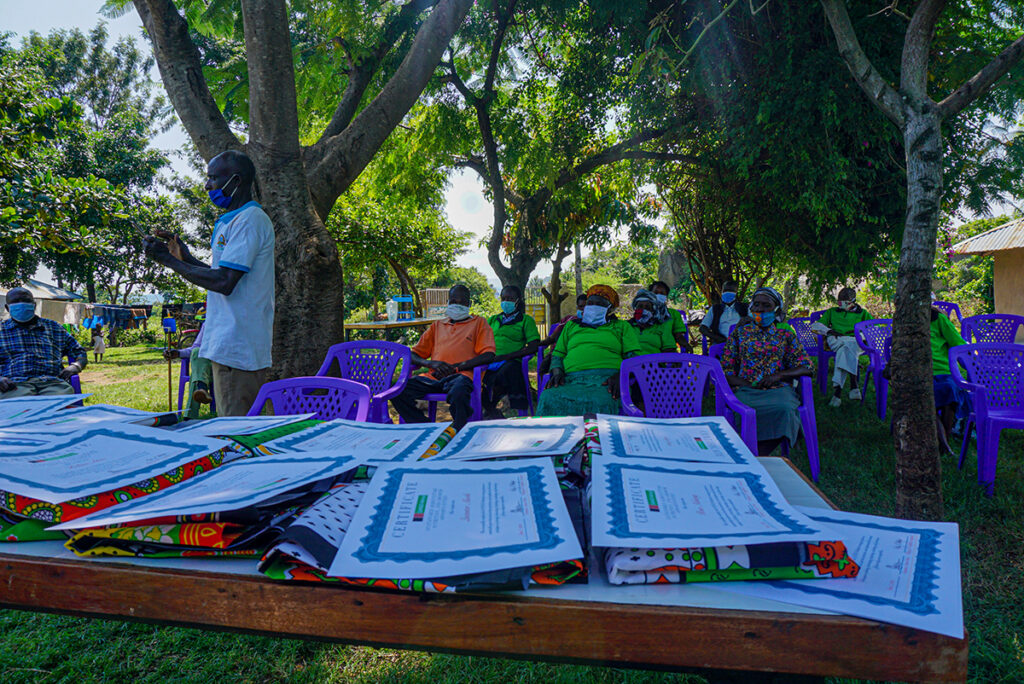
Participating in a program like SANGO-Kenya is a source of pride for the farmers. They receive knowledge from experts – and the benefits of the knowledge are evidenced by the health and abundance of the crops. The success of our program created interest and excitement in the community. The farmers deserved a celebration that recognized their hard work and admirable achievements, and that’s what we had.
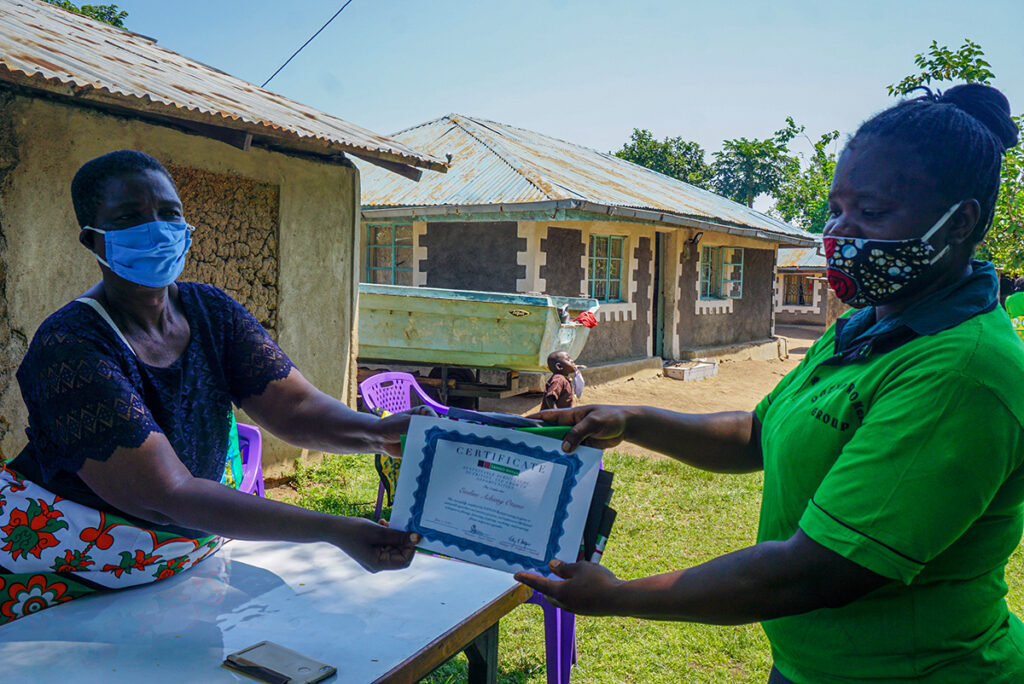
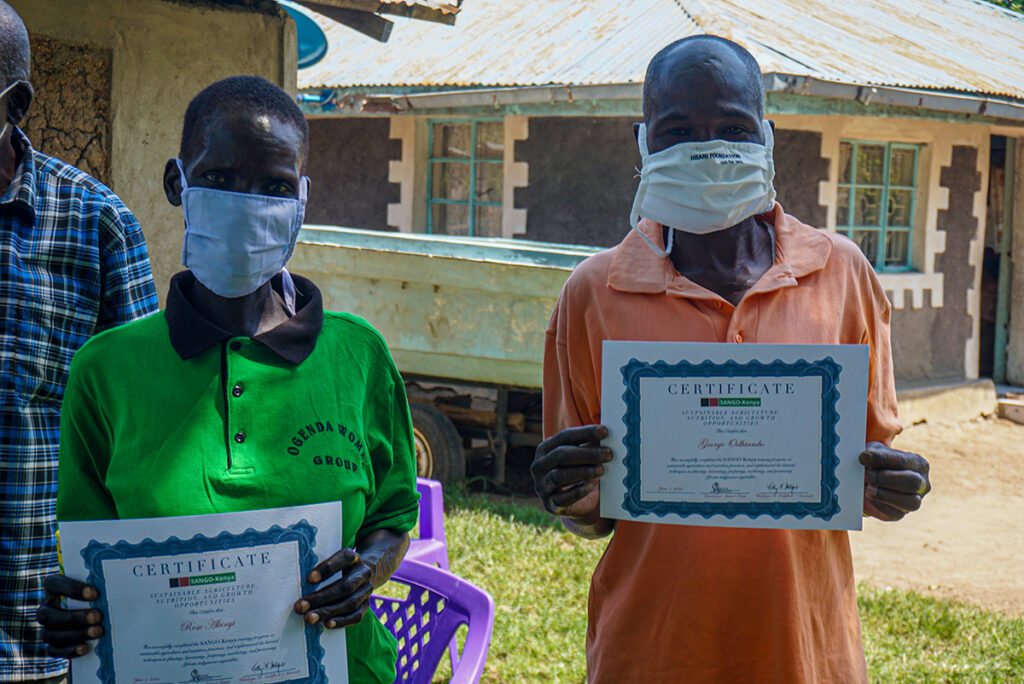
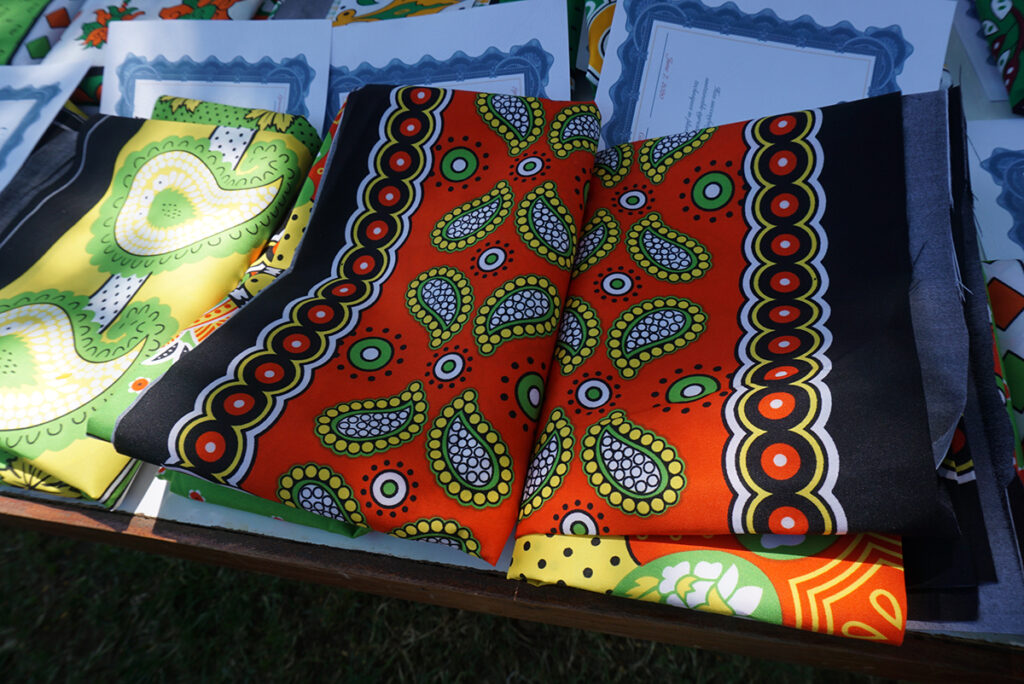
Benta and the participants picked a date and some of the women went to the village chief to get permission. Etan, who knew all of the farmers from his visit to take photographs of the program, designed certificates for each farmer with her name on it. Constance and I signed them. Benta had them printed on nice paper as she knew they would want to keep them, perhaps even hang them on their walls. As many of the participants have not graduated from high school, a certificate that recognizes training means a lot, is a source of pride and can even potentially open up work opportunities.
We also wanted to give each participant a gift they would use and would also help them remember SANGO-Kenya and the whole experience. Benta found beautiful lessos, colorful Kenyan cloths worn by women, often around their waists.
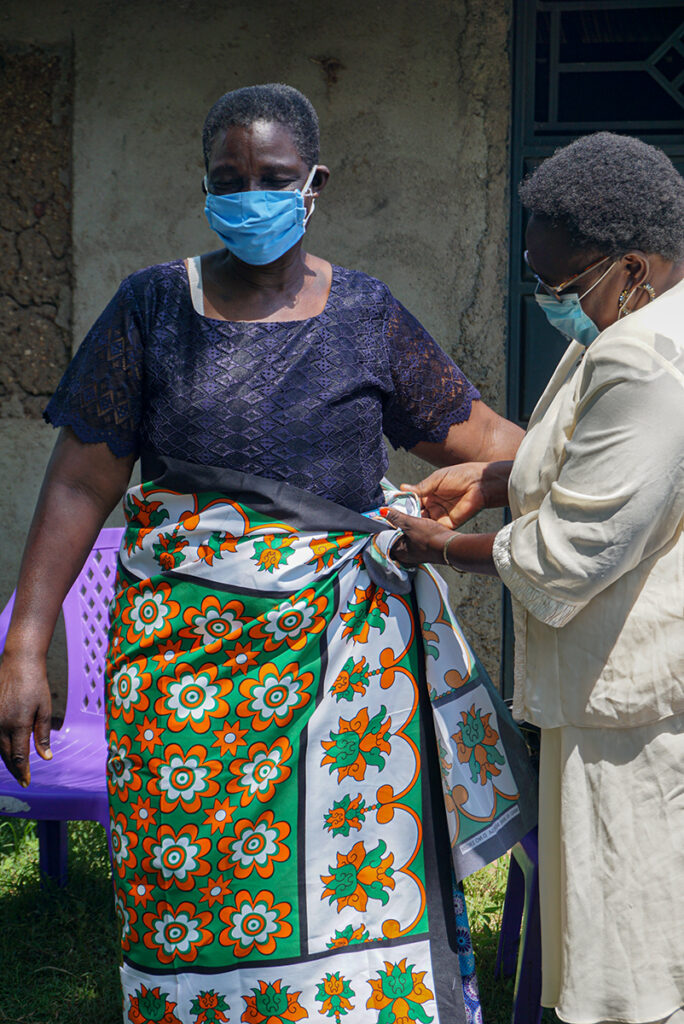
By all accounts, it was a joyous occasion. Dominick, Benta, and even the village chief spoke to the attendees and handed out the certificates. Though everyone wore masks, we are sure they were smiling.
For SANGO-Kenya, the graduation commemorated the completion of the pilot, our first project; but it also signified the beginning of a way forward for sustainable food and nutrition security. All of us learned a lot. Constance and I are now evaluating what we learned, how we can strengthen the program and enhance the benefits to the communities we serve, so that next year we will have even more to celebrate at graduation.
